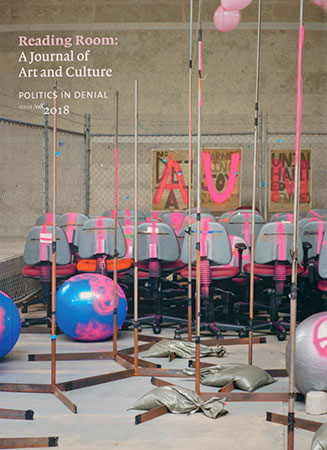
Be in the know
Sign up to our newsletter to stay up to date

This issue of Reading Room focuses on a select group of case studies that reveal the historical conditions within which art engages politics in and from Aotearoa New Zealand. We seek to isolate and understand the conditions for and character of political art practice in New Zealand. However, the purpose of this issue of Reading Room is not to describe ‘political art’ in New Zealand, but to draw out the question of ‘how political practice is uniquely inflected in New Zealand’. Paying special attention to particular case studies in which a political position is evaded, we examine a thread of political absence as much as we draw attention to its presence in recent times. Essays may ask where political agency or voice is ‘denied’ or made incoherent through local examples of artistic practice, particularly with respect to identity politics and feminist practice of the 1990s. A key question for the issue is ‘what happened to art’s place in the revolution in New Zealand?’ as it intensified in the 1980s over issues of nuclear free borders, gender and race equality, sovereignty, suffrage, the environment and more. On what occasions, according to what conditions, and with what results has art practice entered the fray of politics or not? It is fitting, in the year of Dr Ranganui Walker’s passing, the author of Struggle Without End, among other titles, that the journal takes stock of the central debates that define our recent history.
Editors: Christina Barton, Natasha Conland and Wystan Curnow
Managing editor: Catherine Hammond
Contributors: Natasha Conland, Fiona Connor, Wystan Curnow, Betty Davis, Sarah Farrar, Simon Gennard, David Hall, Alfredo Jaar, Robert Leonard, Anna Marie White, and Victoria Wynne-Jones
RRP $35 Contact the shop to purchase